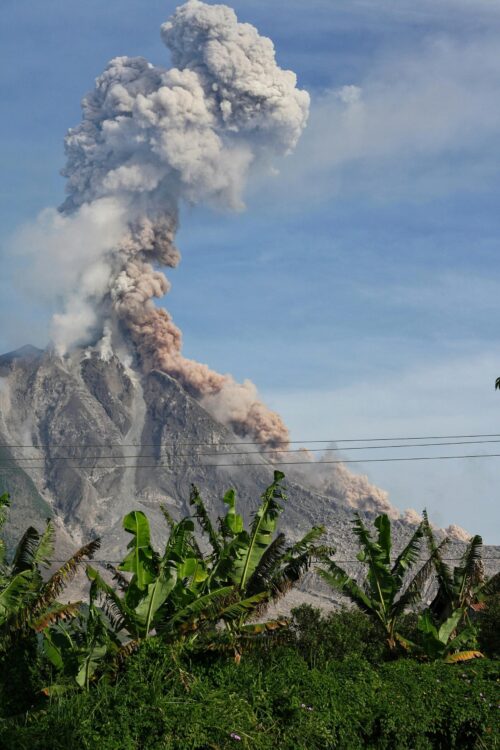One of Indonesia’s most active volcanoes, Mount Lewotobi Laki-Laki, erupted on Tuesday, releasing a massive ash plume that soared over 11 kilometres into the atmosphere, following the issuance of the country’s highest-level volcanic alert.
The eruption occurred at 17:35 local time (10:35 BST), according to Indonesia’s volcanology agency. The towering ash cloud rose above the island of Flores, a popular tourist destination in the country’s east.
Authorities had previously established a 7km exclusion zone around the crater of the 1,584-metre-high volcano, which has a twin peak. As of the latest reports, there have been no confirmed injuries or structural damage caused by the eruption.
Mount Lewotobi Laki-Laki had shown renewed activity in November, erupting several times and resulting in the deaths of nine people. Thousands were evacuated during that period, and several flights were cancelled due to the ash cloud’s impact on air travel.
Muhammad Wafid, head of the country’s geology agency, emphasized the importance of adhering to the exclusion zone and warned residents of the risk of lahar flows—dangerous torrents of volcanic mud and debris—should heavy rain follow the eruption. He urged people to refrain from conducting any activities within 7km of the crater.
To mitigate health risks, residents were also advised to wear face masks to shield themselves from inhaling volcanic ash, which can cause respiratory problems.
The National Disaster Mitigation Agency reported that at least one village near the volcano had already been evacuated. Ash fall, often referred to as “ash rain,” was also detected in several other communities beyond the exclusion perimeter.
Agency officials issued an appeal to residents in the vicinity of the volcano to immediately relocate to designated safe zones. Tremors continued to be recorded following the eruption, indicating ongoing seismic and volcanic activity.
The volcano had last erupted in May, an event that similarly prompted authorities to raise the alert level to its most critical.
Lewotobi Laki-Laki, which translates to “man” in Indonesian, is one half of a volcanic duo. Its twin, Lewotobi Perempuan—meaning “woman”—is taller at 1,703 metres but has remained relatively inactive during this recent bout of geological unrest.
Indonesia, part of the Pacific Ring of Fire, is home to more than 120 active volcanoes and is frequently impacted by volcanic activity due to its complex tectonic setting.






